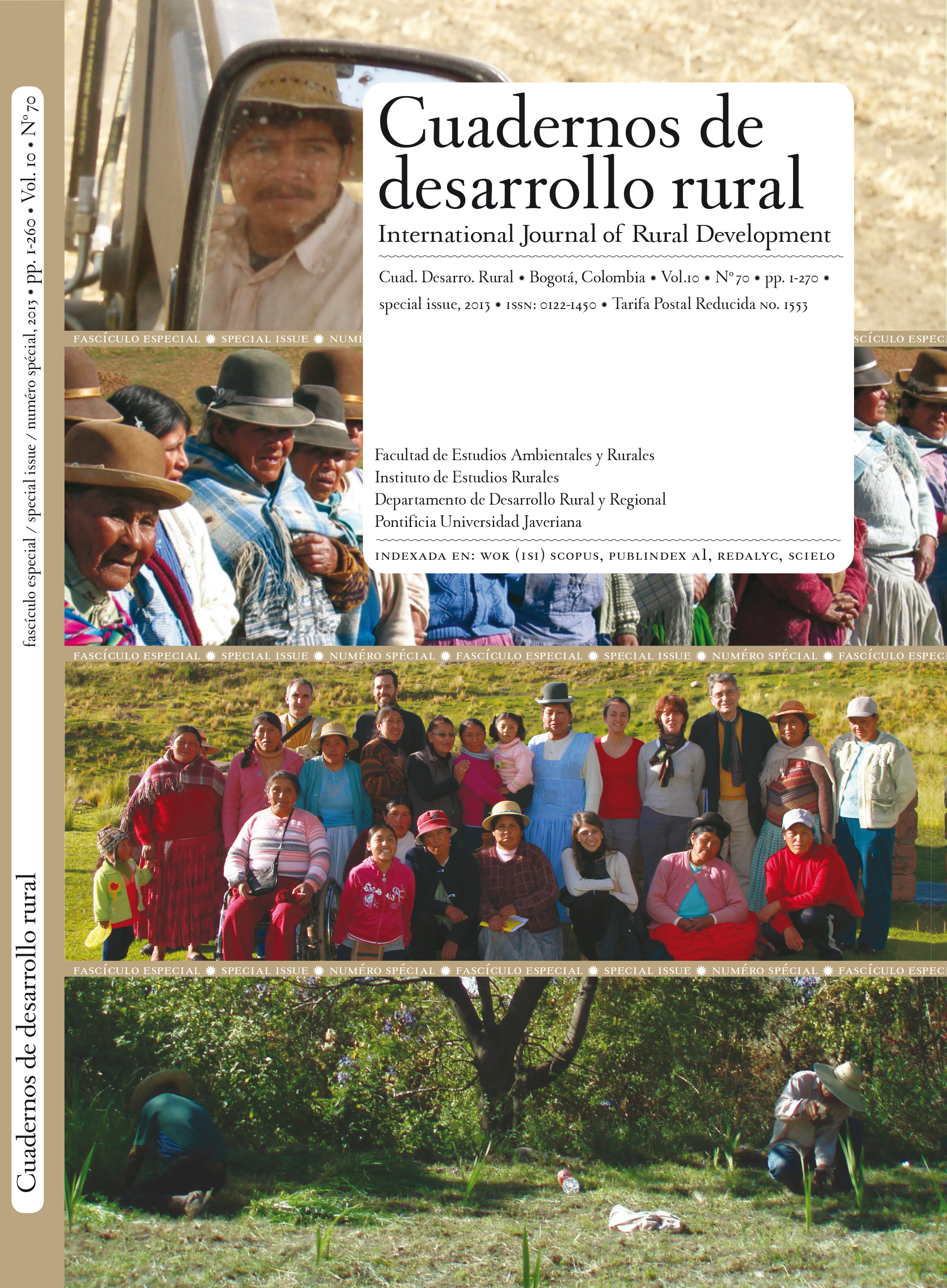Abstract
The New Regionalism – NR, is an arena in which diverse movements, theoretical approaches and policies converge, and is increasingly accepted and used in the field of regional planning. As a macro-structure, the NR articulates different movements and streams of thought, with regional development as the common goal, although primarily focused on metropolitan regions. This paper analyzes the NR, outlines the current contents and theoretical underpinnings identifies the main criticisms and lessons learned with potential application in rural regions. It also suggests adjustments and a policy framework that can be applied within the context of rural territories.Cuadernos de Desarrollo Ruralis registered under a Creative Commons Attribution 4.0 International Public License. Thus, this work may be reproduced, distributed, and publicly shared in digital format, as long as the names of the authors and Pontificia Universidad Javeriana are acknowledged. Others are allowed to quote, adapt, transform, auto-archive, republish, and create based on this material, for any purpose (even commercial ones), provided the authorship is duly acknowledged, a link to the original work is provided, and it is specified if changes have been made. Pontificia Universidad Javeriana does not hold the rights of published works and the authors are solely responsible for the contents of their works; they keep the moral, intellectual, privacy, and publicity rights.
Approving the intervention of the work (review, copy-editing, translation, layout) and the following outreach, are granted through an use license and not through an assignment of rights. This means the journal and Pontificia Universidad Javeriana cannot be held responsible for any ethical malpractice by the authors. As a consequence of the protection granted by the use license, the journal is not required to publish recantations or modify information already published, unless the errata stems from the editorial management process. Publishing contents in this journal does not generate royalties for contributors.


